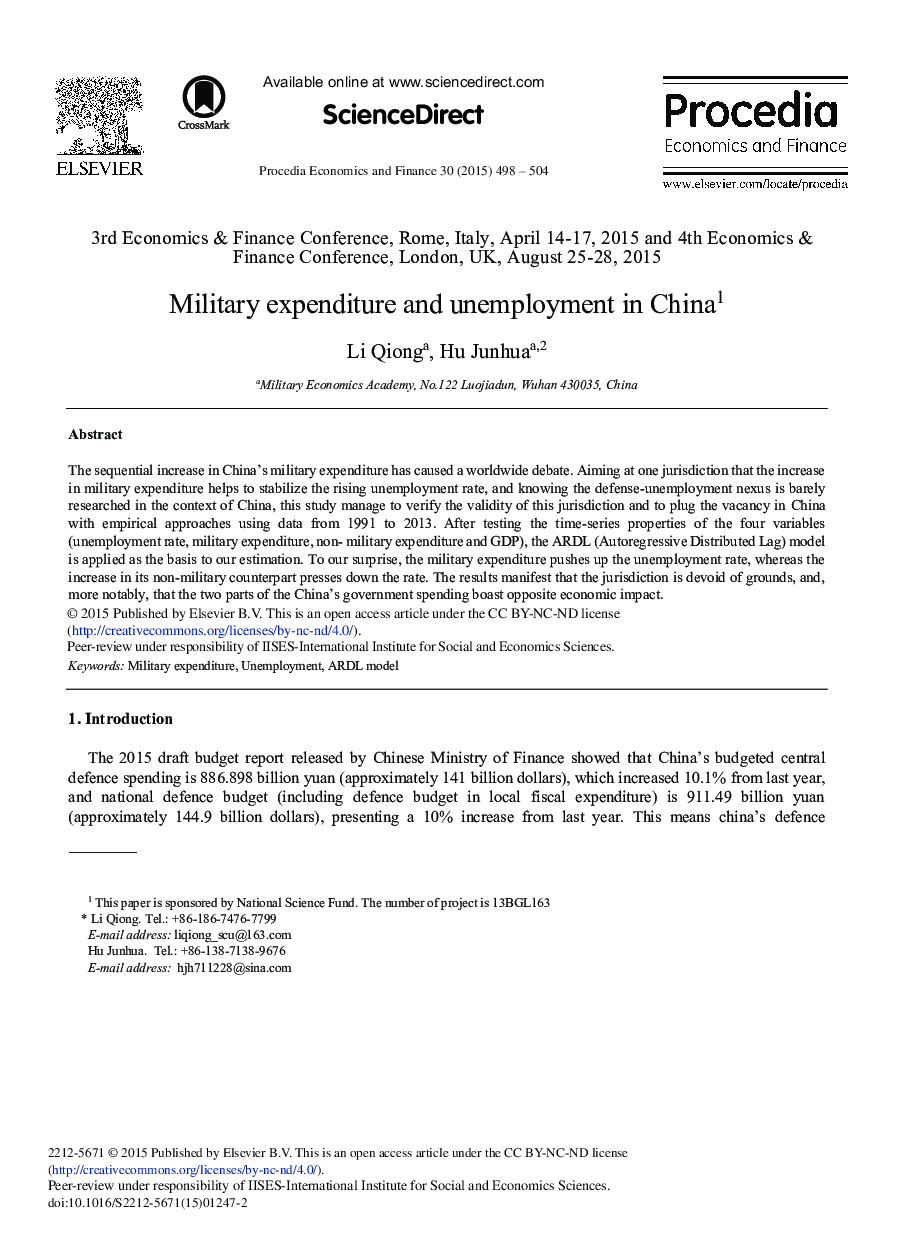| Article ID | Journal | Published Year | Pages | File Type |
|---|---|---|---|---|
| 981046 | Procedia Economics and Finance | 2015 | 7 Pages |
The sequential increase in China's military expenditure has caused a worldwide debate. Aiming at one jurisdiction that the increase in military expenditure helps to stabilize the rising unemployment rate, and knowing the defense-unemployment nexus is barely researched in the context of China, this study manage to verify the validity of this jurisdiction and to plug the vacancy in China with empirical approaches using data from 1991 to 2013. After testing the time-series properties of the four variables (unemployment rate, military expenditure, non- military expenditure and GDP), the ARDL (Autoregressive Distributed Lag) model is applied as the basis to our estimation. To our surprise, the military expenditure pushes up the unemployment rate, whereas the increase in its non-military counterpart presses down the rate. The results manifest that the jurisdiction is devoid of grounds, and, more notably, that the two parts of the China's government spending boast opposite economic impact.
